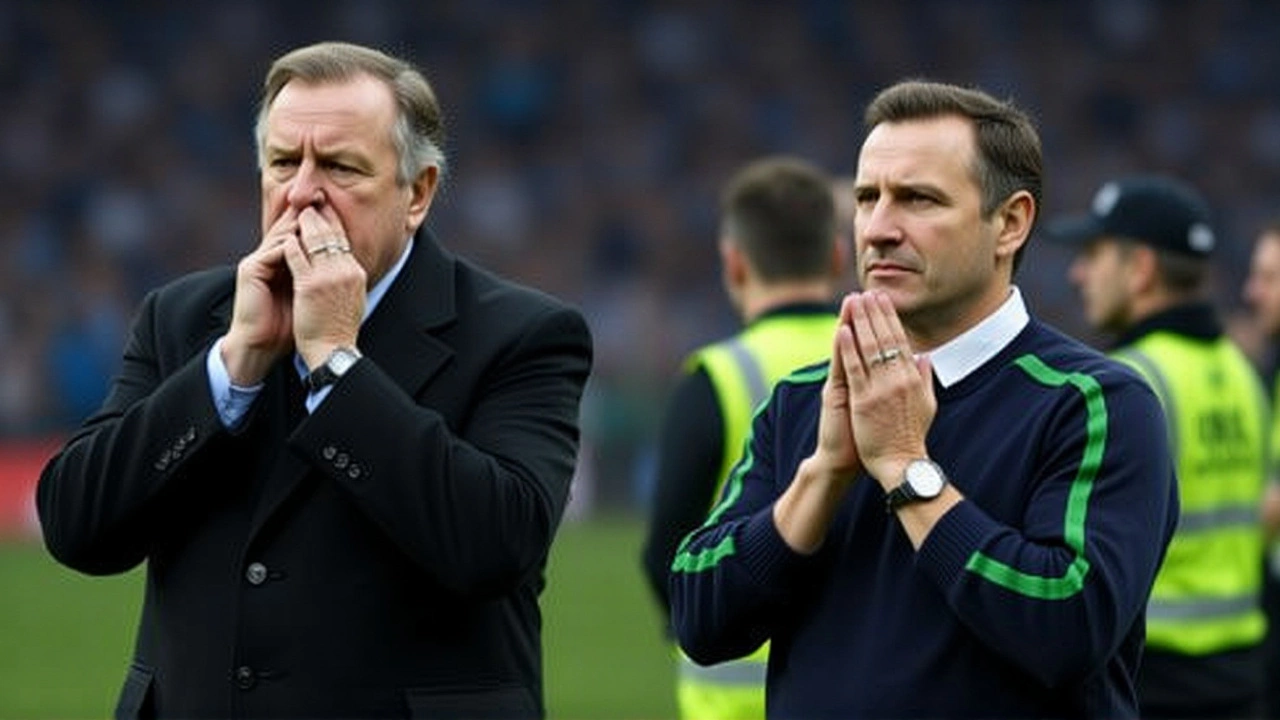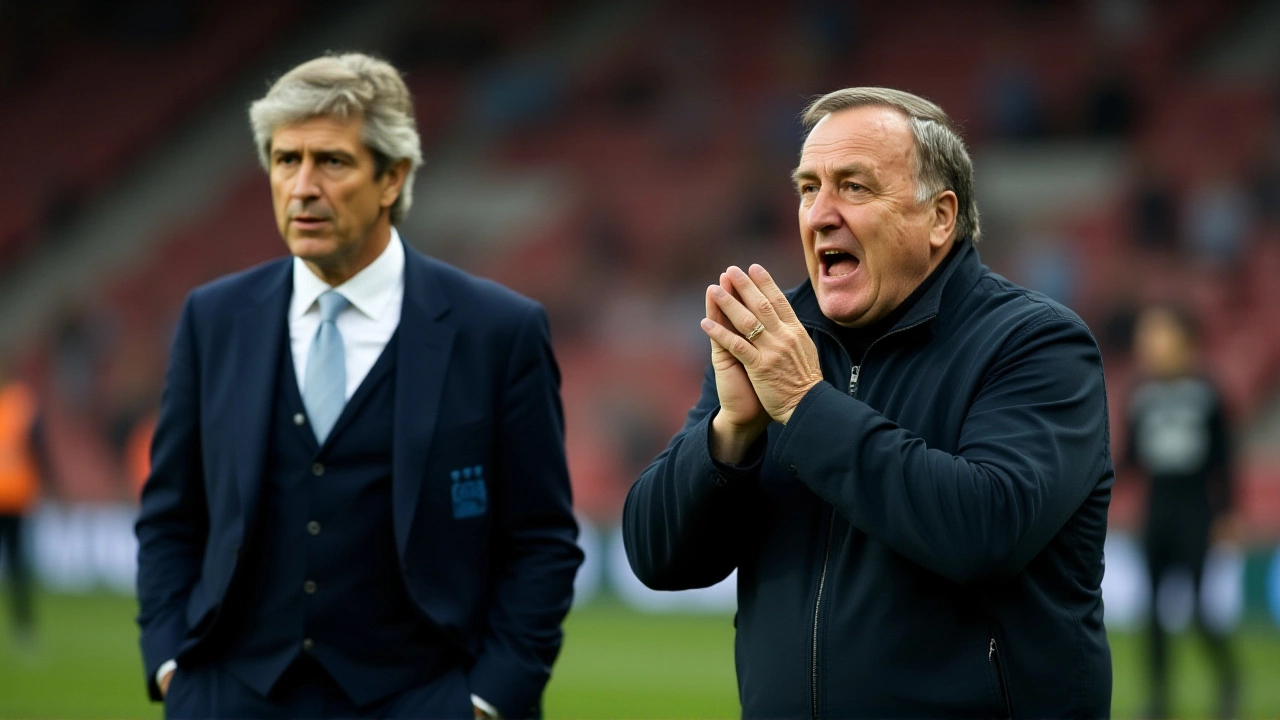When Sunderland AFC collapsed 4-1 to Manchester City FC at the Etihad Stadium on Tuesday, October 27, 2015, the scoreboard told one story — but the manager’s words told another. Dick Advocaat, the 68-year-old Dutch tactician steering a sinking ship, didn’t point fingers. Instead, he singled out DeAndre Yedlin, the 22-year-old American right-back, for doing ‘really well’ in a match that left fans stunned and his own job on the line.
A Team in Freefall
Just 72 hours before the Etihad defeat, Sunderland had been humiliated 2-0 at Bournemouth’s Vitality Stadium. Advocaat had called it ‘shameful,’ telling reporters, ‘We have to be ashamed of what we did.’ He said he’d look in the mirror — and he expected his players to do the same. The weight of 700-mile journeys made by loyal fans wasn’t lost on him. ‘I feel very sorry for them,’ he said. ‘I really, honestly, mean that.’
By October 27, Sunderland’s Premier League record stood at zero wins in six games. Thirteen goals conceded. Two points. Bottom of the table. The winless streak? Nine matches — stretching back to the final weeks of the 2014-15 season, when Advocaat had barely rescued them from relegation. Now, the same man who delivered survival was being asked to deliver miracles.
Yedlin: The Bright Spot
Amid the chaos, one name stood out: DeAndre Yedlin. Signed from Seattle Sounders FC for £3 million in August, the U.S. international had been under scrutiny. Critics questioned whether his pace and energy could translate to the Premier League’s physicality. But against Manchester City, he didn’t just survive — he competed. He tracked back, he pressed, he made overlapping runs that occasionally stretched City’s defense. Advocaat didn’t mince words: ‘DeAndre Yedlin did really well in 4-1 loss to Man City.’
That praise carried weight. In a team where confidence was evaporating, Yedlin was one of the few who looked like he still believed. His performance wasn’t enough to change the result — Manchester City’s goals came from Sergio Agüero, Kevin De Bruyne, Raheem Sterling, and Ilkay Gündogan — but it was a rare flicker of light.
Pressure Builds
Advocaat’s position was crumbling. TheScore.com reported he ‘may be driven out of the club soon if results don’t improve soon.’ The board, led by owner Ellis Short, had tolerated a rebuild. But this? Nine games without a win? A defense that looked like Swiss cheese? The patience was wearing thin.
He’d tried to rebuild. New signings. Tactical tweaks. But the team looked disjointed. ‘Last season it was a totally different team,’ Advocaat admitted after Bournemouth. ‘Now there is competition for places, but we need wins.’ The new players? They hadn’t won a game. The old ones? They weren’t showing up.
And then there was the schedule. Four days after the City loss, Sunderland faced Manchester United FC at Old Trafford. A win there could’ve sparked a turnaround. A loss? That would’ve been the final nail.

What’s at Stake
It wasn’t just about Advocaat. It was about identity. Sunderland AFC, founded in 1879, had once been a powerhouse — seven-time English champions, European finalists. Now, they were a cautionary tale. The Stadium of Light, with its 49,000 seats, echoed louder with silence than cheers.
Manchester City, meanwhile, were in full throttle under Manuel Pellegrini. They’d won their last four league games. This was a team built for dominance — backed by Sheikh Mansour’s billions, playing with precision and power. Sunderland? They were playing for survival. Literally.
What Comes Next
The Manchester United match on October 31 didn’t go well. Sunderland lost 2-0. Advocaat stayed on — for now. But the writing was on the wall. By December, he’d be gone, replaced by David Moyes. The club would finish 19th, just one point clear of relegation. Yedlin, however, would earn a permanent place in the squad — eventually becoming a fan favorite.
Advocaat’s legacy at Sunderland? A brief savior turned casualty of circumstance. He saved them from the drop. But couldn’t lift them from the depths.
Frequently Asked Questions
Why was Dick Advocaat under so much pressure after the Manchester City loss?
Advocaat was under intense pressure because Sunderland had gone nine consecutive Premier League games without a win, sitting bottom of the table with only two points and the worst defensive record in the league (13 goals conceded in six games). After a humiliating 2-0 loss to Bournemouth just days earlier, fans and media questioned his ability to turn things around — especially with a tough Manchester United fixture looming.
How did DeAndre Yedlin stand out in such a poor team performance?
Yedlin was one of the few Sunderland players who consistently pressed, tracked back, and used his speed effectively against Manchester City’s attack. Unlike many teammates who looked disengaged, he showed hustle and defensive discipline — traits that earned direct praise from Advocaat. His performance was a rare positive in a match where Sunderland’s entire backline looked overwhelmed.
What was the significance of the Capital One Cup match for Sunderland’s season?
The 4-1 loss eliminated Sunderland from the 2015-16 Capital One Cup, removing any chance of a cup run to boost morale or revenue. With the team struggling in the Premier League, the cup was one of the few remaining opportunities to gain momentum. Its early exit deepened the sense of crisis and intensified scrutiny on Advocaat’s leadership.
Did Advocaat’s praise of Yedlin help the player’s career at Sunderland?
Yes. Advocaat’s public endorsement gave Yedlin crucial confidence during a turbulent period. He went on to start 25 Premier League games that season and became a regular in the U.S. national team. His consistent performances eventually earned him a move to Tottenham Hotspur in 2016 — a direct result of the foundation he built under Advocaat, despite the team’s overall collapse.
How did Manchester City’s performance reflect their status as a top club?
Manchester City dominated possession, created 18 shots (10 on target), and showcased their depth with goals from four different players — including stars like De Bruyne and Agüero. Their clinical finishing and tactical discipline under Pellegrini highlighted why they were title contenders, while Sunderland’s defensive disorganization exposed their lack of cohesion and quality.
What happened to Dick Advocaat after the Manchester United loss?
Advocaat remained in charge for another two months, but after a 3-0 loss to Arsenal in December, he was sacked. David Moyes replaced him and narrowly kept Sunderland in the Premier League. Advocaat later returned to manage the Russian national team, but his time at Sunderland ended as a cautionary tale — a respected coach overwhelmed by a squad in decline.
